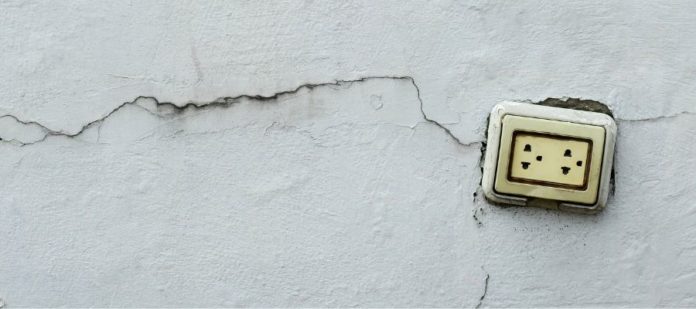If you’re dealing with a drafty home, even when no windows or doors are open, there’s bound to be something bigger at play. You deserve to live in comfort in your own home; keep the cold out by learning the most common causes of household drafts and what you can do to fend them off.
Warped Door Frames
Do you live in an older house? The wooden frames around your doors have probably seen better days. As those frames age, they can warp and create gaps that let cold air in, even when the door itself is closed.
Consider replacing the frames on all doors that lead to the outside. While you’re at it, look into replacing the doors themselves to ensure tight seals and adequate insulation.
Open Chimney Damper
If your home has a chimney, check to make sure the damper is closed when the fireplace is not in use. Chimneys are a common source of drafts when left open to the elements.
Tip:
Have your chimney cleaned and maintained every year, and replace the damper if it’s not keeping cold air out. A faulty damper can also let pests into your home!
Cracks Around Outlets
Take a closer look at the outlets in your walls, as well as any recessed light fixtures. These spots can develop tiny cracks or gaps around them that weaken the integrity of your insulation and let cold air in.
If you suspect there are small gaps or cracks in your walls but you can’t physically see them, schedule a blower door test for your home. This test can identify even the smallest openings that could be responsible for all that draftiness.
Old Insulation
Insufficient or aging attic insulation can let a great deal of cold, drafty air into your home. Perform a quick inspection of your attic to determine whether there are any gaps in the insulation, and call a professional to augment it if there are any empty spots.
Want another way to gauge your insulation’s effectiveness? Next time your neighborhood experiences heavy snowfall, compare the rate of melting on your roof to that on your neighbors’ roofs. If the snow melts off your roof more quickly, that means your attic is releasing warm air to the outside instead of keeping it inside your home.
If you’re dealing with uncomfortable household drafts, especially in cold weather, check your home for the most common causes of air leakage. Once you find the culprit, you can more easily brainstorm a solution.






















